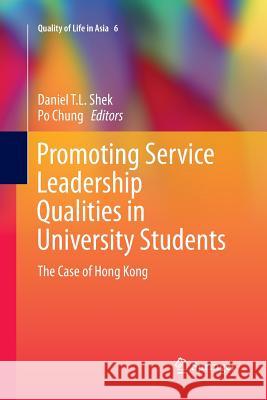Promoting Service Leadership Qualities in University Students: The Case of Hong Kong » książka
topmenu
Promoting Service Leadership Qualities in University Students: The Case of Hong Kong
ISBN-13: 9789811012686 / Angielski / Miękka / 2016 / 240 str.
Kategorie:
Kategorie BISAC:
Wydawca:
Springer
Seria wydawnicza:
Język:
Angielski
ISBN-13:
9789811012686
Rok wydania:
2016
Wydanie:
Softcover Repri
Numer serii:
000448656
Ilość stron:
240
Waga:
0.38 kg
Wymiary:
23.39 x 15.6 x 1.47
Oprawa:
Miękka
Wolumenów:
01
Dodatkowe informacje:
Wydanie ilustrowane











